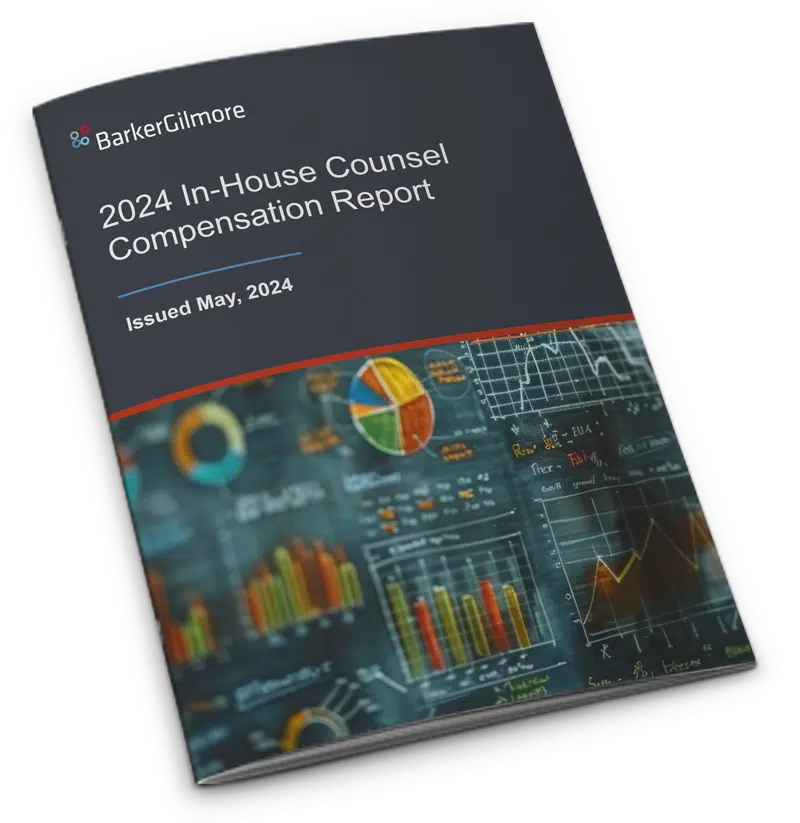Much has been written about cringe-worthy mistakes candidates make while interviewing, so it’s easy to forget even the most experienced interviewers aren’t immune from error themselves.
This is particularly true when interviewing a legal or compliance candidate. Many companies have only a few legal or compliance professionals on staff, so the need to hire them may arise only once every few years.
These professionals have the responsibility of protecting the integrity of your company, so the process for evaluating them must be rigorous. Using the same approach you use to hire the sales staff won’t yield the results you need. The job responsibilities are vastly different, so the assessment process must be tailored accordingly.
Here are the most common mistakes we see interviewers make in this area.
Not being well organized
Candidates deserve the same level of respect as your company’s key executives. You wouldn’t keep the CEO waiting, and it’s not acceptable to allow your candidate to sit in the lobby for 25 minutes, either. A disorganized interview sends a clear signal to the candidate about the working environment.
To communicate a more professional one, everyone in your organization needs to understand his or her role in the process. Know who will be greeting the candidate, who is responsible for participating in panel discussions and who is taking the candidate to lunch. Finally, have all questions prepared in advance with the input of all key stakeholders.
Not asking consistent questions
To keep the process fair to all candidates, ask the same questions of each and use a rubric to evaluate the responses. If a candidate gives a one-sentence response, for instance, he or she would earn a score of 1 for that question. Offering a specific example would earn a 2, while a clearly articulated industry-specific example would earn the highest score of 3.
Maintaining a standard procedure ensures you are evaluating candidates based on qualifications, rather than other factors. This is an important defense against rater bias, or the tendency to favor one candidate over another because they have something in common with the interviewer. Be aware of the human tendency to have positive feelings toward someone who grew up in your area, graduated from the same school you did or has interests similar to yours.
Not taking quality notes.
Several weeks may pass between candidates, so it’s crucial to have a complete, accurate picture of each one so they can be compared later. In addition to rating a candidate’s responses to each question, make note of what the response entailed that impressed you or made you hesitant. Note the candidate’s body language while answering. Did he or she avoid eye contact or give other signs of a lack of sincerity? Did the candidate appear nervous or calm and confident?
Have several people taking notes so you can compare them, ensuring you don’t miss crucial pieces of information.
Using the wrong phrasing.
The information you’ll gain from each candidate will only be as good as the questions you ask. When analyzing behavioral traits, interviewers have a tendency to ask “soft” questions that offer little or no value. The interviewer often has the right intention but fails to phrase the question properly.
Here’s one example of a poorly-phrased question: Are you a fast learner?
A better question: Describe a time when you needed to learn subject matter quickly in order to complete the project and meet a deadline.
The best behavioral-based questions are open-ended, begin with a verb and don’t require a question mark.
Talking too much.
In the eagerness to attract a strong candidate, some interviewers spend too much time talking and not enough time listening. This makes it difficult to properly assess the candidate.
If both sides are talking about 50 percent of the time, that’s a sign the interview is going well. If the interviewer does most of the talking and the candidate can barely get a word in edgewise, the interview won’t provide a proper evaluation. Likewise, if the candidate does 75 percent of the talking, it’s a sign the interviewer isn’t asking enough quality questions.
Asking illegal questions.
Experienced interviewers know what they’re legally permitted to ask, but anyone can slip up if they let their guard down.
This most often happens when the interviewer and candidate are talking between “official” interview sessions. Casual personal questions are inappropriate at best and legally questionable at worst.
Even if the candidate mentions a spouse, for instance, it’s not appropriate to ask how that spouse feels about relocating. This is a mistake you don’t want to make when you’re hiring someone who is well-versed in legal matters.
With careful planning and preparation, you can prevent these common interviewing mistakes. If you’re hiring legal counsel or recruiting compliance candidates and haven’t do so recently., make sure you’ve done your research on key competencies of the position, as well as the candidate’s backgrounds. As a starting point, you should have an appreciation for law school rankings, rating of particular law firm practice groups and the reputation of the law departments of the previous companies where the candidates have worked.
A legal recruiting firm that also specializes in hiring compliance officers will be well-versed in what questions to ask and how to evaluate candidates.
To learn more about how to assess top talent and what to ask, download our free guide, “8 Ways to Effectively Evaluate Legal and Compliance Candidates.”
Connect with a legal recruiting advisor
* indicates required fields







